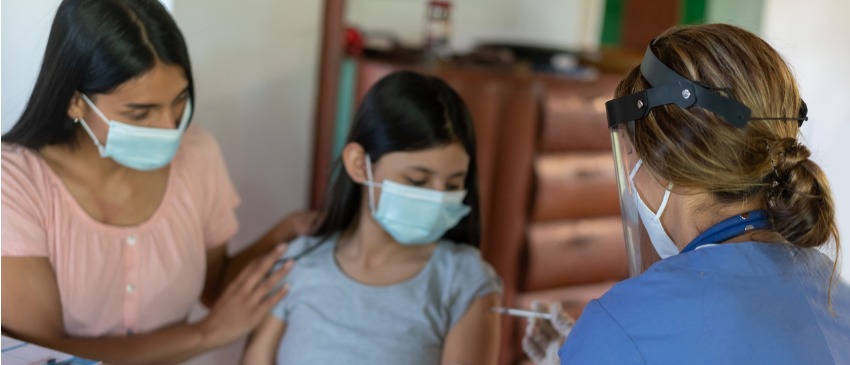
Building Resilience: Gender and Social Inclusion Trainings for COVID-19 Responders in Colombia
Over the past few years, political and economic turmoil in Venezuela has led to an unprecedented wave of migration to Colombia as well as other countries in the region. In fact, the Colombian government predicted that 3 million Venezuelan migrants would be living in the country by the end of 2020. The government faces the dual challenge of providing social services to migrants and responding to the COVID-19 crisis. The pandemic has added additional strain on a health care system already facing significant obstacles in providing resources to vulnerable populations, including migrants. For migrants, the challenges in accessing health care are compounded by social, economic, and political factors, which are further exacerbated by the pandemic. For example, many migrants don’t go to health centers because they believe they won’t be served, while at the same time they are more likely to perform jobs that do not allow them to practice social distancing, exposing themselves to greater risk of infection. Women migrants are especially likely to work in the informal economy as domestic workers and in other financially insecure roles. Due to the pandemic, they are now facing income loss and a much greater risk of abuse and exploitation, particularly those who cannot return home owing to travel bans and border controls.
The United States Agency for International Development (USAID) Local Health System Sustainability (LHSS) Project collaborates with the Colombian government to strengthen the health care system to sustainably integrate Venezuelan migrants and respond to health emergencies, including COVID-19. Banyan Global, is a subcontractor on the LHSS Project, leading gender and social inclusion programming. Banyan Global developed a gender equality and social inclusion (GESI) strategy to provide guidance to LHSS Project staff and partners to ensure more equitable outcomes. The GESI strategy serves as the basis to analyze GESI considerations in project activities and defines actions to help the project achieve its goal of more inclusive health systems strengthening.
The goals of the GESI strategy in Colombia are to:
- Integrate gender into the analysis, design, implementation, monitoring, evaluation, and learning (MEL) of interventions,
- Promote meaningful participation by women and other socially excluded groups in health systems management, leadership, and governance; and
- Avoid exacerbation of the problems and barriers faced by women, underserved, and socially excluded groups in accessing and using quality health services.
Since September 2020, the LHSS Project has supported the Colombian Ministry of Health and Social Protection’s efforts to create 34 rapid response teams to work within government health secretariats in nearly every department in the country. Each four-person team includes an epidemiologist, nurse, doctor, and nursing assistant. These rapid responders are a key component of the Colombian government’s efforts to improve COVID-19 surveillance and data collection, and they assist health facilities in their testing and contact tracing efforts, and work with community leaders to disseminate messaging about how to curb the spread of the virus.
In December 2020, local LHSS staff and partners hosted a GESI training for COVID-19 rapid response teams working directly with underserved populations to address issues related to migration challenges and COVID-19. The purpose of these trainings, which were held over Zoom in accordance with pandemic safety protocols, was to understand key concepts related to GESI, examine evidence of gender as a social determinant in health outcomes, and to promote gender equality, women’s empowerment, and social inclusion.
The trainings aimed to foster conversation and reflection on GESI among the rapid response teams and to fill existing gaps related to GESI that the responders faced in approaching the prevention, care, and management of COVID-19 and other, non-COVID acute respiratory infections. On a practical level, the training on GESI led the rapid response teams to prepare a COVID monitoring bulletin for the migrant population in Colombia, which included an analysis of epidemiological information, as well as broader preventative community education in handling the biosafety protocol, hand hygiene, and patient care, with particular attention given to the needs of women and vulnerable groups within the affected communities. The bulletin reflects a broader goal of LHSS work in Colombia: to support the government in better addressing and incorporating the needs of migrant communities in health care.
